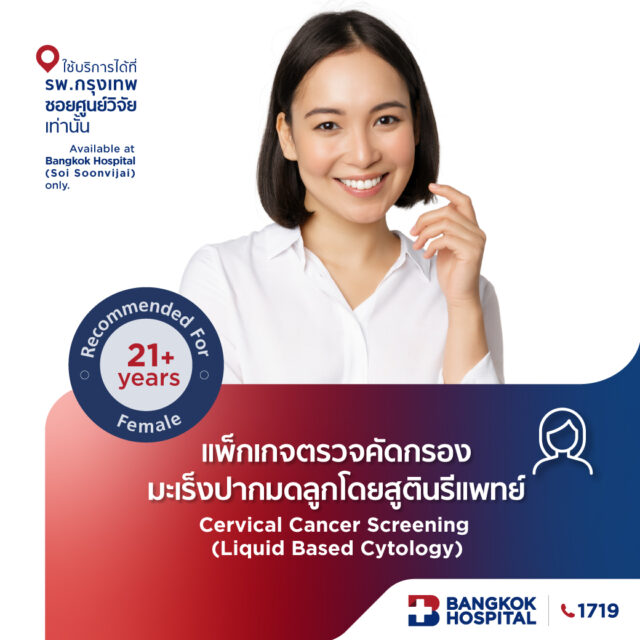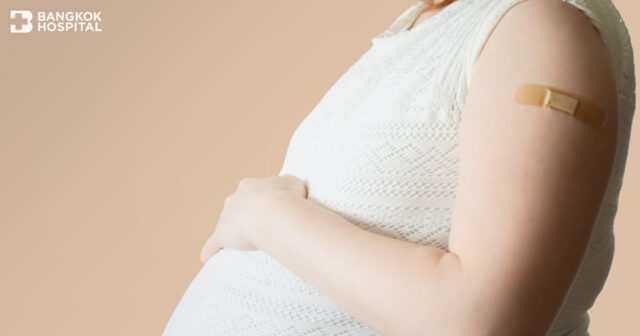To have a complete family consisting of father, mother and children, a premarital checkup acts as the first line of defense for a couple’s happiness. Not only prudent financial planning, but a proper family plan also remains essentially vital. Premarital screening primarily helps a couple identifying a wide range of conditions such as genetic disorders, blood transmitted and infectious diseases, thus relevant treatments can be provided appropriately if any abnormalities are detected. In addition, a complete premarital fertility screening can detect abnormal conditions that potentially reduce the chances of pregnancy. Fertility issues can be addressed as early as possible without the unnecessary biological, psychological, social and emotional trauma associated with barrenness. Therefore, fertility plan can be further made accordingly.
Benefits of premarital screening program
In order to make a proper family plan, premarital checkup is an essential screening program for all couples. Advantages of premarital screening include:
- To evaluate the readiness to have children;
- To identify possible problems or health-related conditions that potentially affect pregnancy and fetus, and
- To create an appropriate treatment plan to increase fertility.
Premarital screening program
Before a holistic premarital screening test begins, medical history and relevant health information will be taken by highly experienced obstetrician-gynecologists. Screening tests for a couple include:
1. General health assessment:
General health assessment helps to evaluate general health status of couples. Assessment includes weight, height, blood pressure, respiratory functions and cardiovascular functions as well as breast examination and abdominal examination.
2. Blood tests:
Blood test aims to detect any signs that might potentially lead to abnormal conditions. Tests include
- Blood group test;
- Concentration of bed blood cells in the blood that certainly links to anemia –a decrease in the number of red blood cells;
- Serological test to identify immune function e.g. existing antibodies against German measles (rubella) and hepatitis B;
- Detection of underlying diseases such as diabetes, hypertension and thyroid disorders. Having these medical conditions puts a pregnant woman and baby at greater risks for serious problems during pregnancy and after delivery. It can result in life-threatening complications if left untreated. If these medical problems are detected prior to pregnancy, appropriate and timely treatment plan could be provided accordingly.
- Detection of inherited diseases such as thalassemia –a blood disorder passed down through families in which the body makes an abnormal form or inadequate amount of hemoglobin. It is estimated that around up to 45% of the Thai population has carried thalassemia gene that lead to thalassemia trait or thalassemia minor.
3. Gynecological examination:
Gynecological procedures aim at assessing the health of a woman’s reproductive system. The general examination usually makes use of a speculum for a view of the vagina and cervix. Examination helps to detect gynecological conditions such as chocolate cysts and uterine myomas (also called uterine fibroids) which is an accumulation of numerous benign, nodular growths or tumors, consisting of muscle and connective tissue, that may form in or on the uterus. These abnormalities largely reduce chances of pregnancy and appropriate treatment is highly needed. More specialized procedures include the Pap smear for the detection of cancer of the cervix. Pap smear test is highly recommended in all women who had sexual intercourse. Absence of sexual activity, women aged over 21 are also advised to get Pap smear test.
Checking reproductive system with a vaginal ultrasound to enhance confidence before getting pregnant
A vaginal ultrasound is an imaging scan taken by a probe inserted into the vagina. It gives a clear picture of the reproductive organs. The requirement of vaginal ultrasound is determined individually by obstetrician-gynecologist. A vaginal ultrasound helps visualizing:
- The structure of uterus, cervix, vagina, fallopian tubes and ovaries.
- The abnormal conditions leading to lowered chances of pregnancy e.g. myoma uteri, chocolate cysts and polycystic ovary syndrome (PCOS) as well as heavy menstrual bleeding and menstrual clots.
- The structure and function of ovaries especially in women who have irregular menstruation and abnormal ovulation.
The importance of premarital screening in women with minimized chances of getting pregnant
In accordance with WHO, women are most fertile during the age of 18-35. After 35, women’s fertility starts to decrease significantly. Infertility is defined as a condition that not being able to get pregnant despite having frequent and unprotected sexual intercourse for at least a year (or longer). Statistical data reviews that a large number of couples, up to 20-30% has been experienced this unsolved problem, resulting from medical issues of either men or women as well as the combination of other factors that interfere with pregnancy. Fertility in women is known to decline steadily with age , thus risk to develop infertility substantially increases. Luckily, almost 70% of couples who have premarital checkup could find out their abnormalities contributing to fertility, allowing proper treatment plan to be given in time. To enhance the chance of pregnancy, premarital and fertility checkup must be comprehensively provided and all advices from specialists should be strictly followed.
Potential risks if premarital checkup is ignored
If a couple skips premarital screening, health-related problems that may arise include:
- Lack of proper family plan for having children
- Wasted time for treating conditions that interfering with fertility although they could have ben caught and treated earlier.
- Excessive stress and anxiety during pregnancy due to inappropriate plan and preparation
- Greater chance to develop serious complications during pregnancy e.g. anemia, diabetes, thyroid disorders and eclampsia, a life-threatening complication of pregnancy, presenting with high blood pressure, protein in the urine, seizures and coma.
- Fetal complications such as impaired growth and development, miscarriage and preterm labor.












